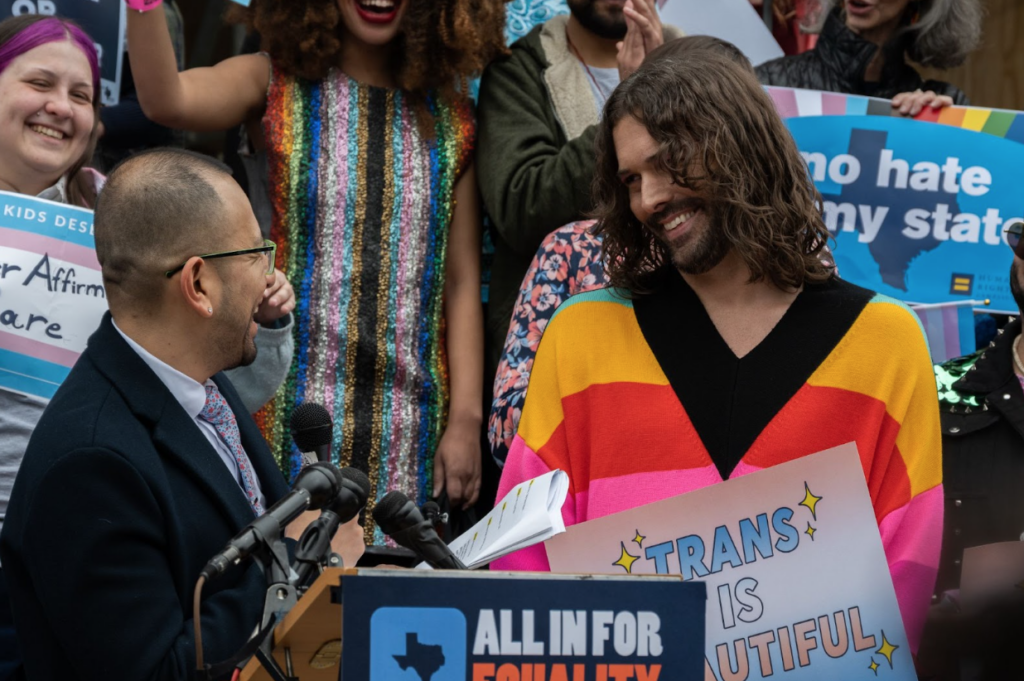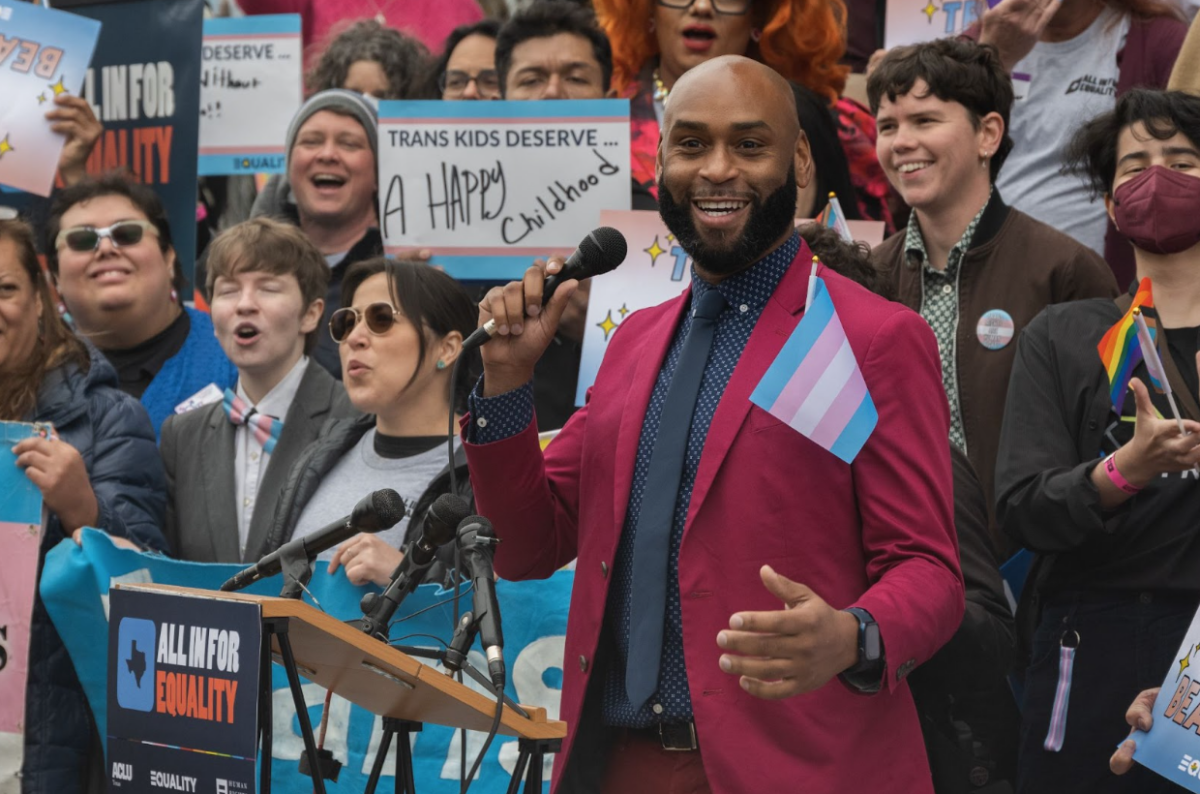by Foster Milburn
On March 20, 2023, Texans from across the state gathered near the south side of the capitol. The goal: to use the mere presence of the community to push back on bills that directly impact the lives of LGBTQ Texans.
National and regional equality groups organized the day in a routine schedule to train and create positive energy amongst attendees. Equality Texas, GLAAD, Texas Freedom Network, Transgender Education Network of Texas, and ACLU were the backbone of the event.
Allies are a crucial part of the LGBTQIA community. “This is a joint effort of the all-in for equality coalition – it’s great to come together with allies,” Communications Director at Equality Texas Jonathan Gooch said. In support of that, Equality Texas provided advocates transportation directly to the training site at the First United Methodist Church of Austin.
Around noon, advocates marched to the capitol building and stopped to gather on the south side. Ricardo Martinez, the CEO of Equality Texas, gave an energetic opening speech. Following his speech, he introduced Cynthia Lee Fontaine, “RuPaul’s Drag Race” television show contestant from season eight and a Texan themselves. Cynthia performed directly in front of the capitol building as a direct visual protest of SB 12, the bill that defunds public libraries holding drag story hours and outlaws any public display of drag.
The bill uses vague language directed at any cisgender person portraying the opposite gender publicly. This leaves out all of the cisgender women and non-binary people who perform drag as well. The language of the bill suggests that the law could be used to target transgender people.
When asked about some of the primary goals for the day, Gooch said, “I look forward to spending some time with community members, celebrating, sharing some queer joy, and showing Texas lawmakers that we’re here, we’re queer, and we’re going to be around for a while.”
After several speeches from transgender college students, equality groups, and other advocates from the community, the crowd lined up to enter the capitol building. Five groups were assigned three different Texas representatives to discuss what bills were wrong and which ones they should support instead.

Josh Tutt, the President of the Pride Community Center in College Station, said, “I was not surprised that we only got to speak with staffers during our office visits and not directly with the elected officials. I was also not surprised that they were, for the most part, unwilling to commit to supporting the bills we were lobbying for.” Each staff member said the representatives were already on the house floor despite once the advocates entered the capitol building.
Another important event was the inspiring speech given by Jonathan Van Ness, a native Texan from the “Queer Eye” series, to Ricardo Martinez, CEO of Equality Texas. As the legislative session unfolds, LGBTQIA Texans have shown that a whole group of marginalized people exists in Texas and are not going away.
On paper, it looks like the entirety of the legislative body is against the LGBTQ+ community; however, the high number of good bills is equal to the number of bad ones, which is crucial to acknowledge.
“We know Texans are generally becoming more supportive of LGBTQ equality,” Gooch said. Why these bills increase each legislative session continues to be questioned following marriage equality not even a decade ago. “As far as I can tell, this is a result of primaries – politicians playing to their primary voters – this tiny group of voters having an outside impact on what bills pass,” Gooch said.
There are Representatives in the legislative body that support bills that favor the LGBTQ population. They refer to bills that promote non-discrimination, mental health services for public education, and healthcare, such as prohibiting the coverage of conversion therapy on all healthcare plans.
The LGBTQ community is equally active in opposing anti-LGBT legislation as legislators who support it. Unfortunately, there is a wall that these bills have built up each legislative session, and the LGBTQ community in Texas is pushing back. This session represents the most visible display of a marginalized community claiming power against the harmful and incorrect stigma around not only queer expression, but the community’s very existence in this state.


